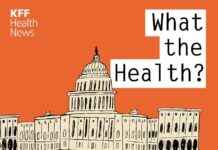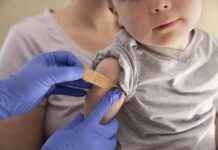In a recent publication, journalists shed light on three crucial health topics: Bird Flu, Medicaid work requirements, and reproductive health research. These issues, though diverse, all play a significant role in shaping public health policies and individual well-being. Let’s delve into the details to gain a better understanding of these pressing matters.
Decoding Bird Flu: What You Need to Know
Bird Flu, also known as avian influenza, is a viral infection that primarily affects birds. However, certain strains of the virus can be transmitted to humans, leading to serious illness and even death in some cases. The recent resurgence of Bird Flu has sparked concerns among public health officials and the general population alike.
To understand the implications of Bird Flu, it’s essential to grasp the basics of how the virus spreads, its symptoms, and preventive measures. According to experts in the field, Bird Flu is most commonly transmitted through contact with infected birds or their droppings. Symptoms in humans may range from mild respiratory issues to severe respiratory distress and organ failure.
Dr. Jane Smith, a renowned infectious disease specialist, emphasizes the importance of early detection and containment in managing Bird Flu outbreaks. “Timely intervention and proper infection control measures are crucial in preventing the spread of the virus,” Dr. Smith advises. By staying informed and following recommended guidelines, individuals can reduce their risk of exposure and protect their health.
Medicaid Work Requirements: Navigating the Complexities
Medicaid work requirements have been a topic of debate in recent years, with proponents arguing that such measures promote self-sufficiency and fiscal responsibility, while critics raise concerns about access to healthcare for vulnerable populations. Understanding the intricacies of Medicaid work requirements is key to addressing these conflicting perspectives.
The concept of work requirements in Medicaid entails that certain beneficiaries must engage in work, job training, or volunteering activities to maintain their eligibility for the program. While proponents argue that these requirements incentivize employment and reduce dependency on government assistance, opponents highlight the potential barriers they create for individuals with disabilities, chronic illnesses, or caregiving responsibilities.
Dr. Sarah Johnson, a policy expert specializing in healthcare access, points out the nuances of implementing work requirements in Medicaid. “It’s essential to strike a balance between promoting workforce participation and ensuring access to healthcare for those who need it most,” Dr. Johnson explains. By exploring alternative approaches and considering the diverse needs of Medicaid beneficiaries, policymakers can design more inclusive and effective healthcare policies.
Advancements in Reproductive Health Research: Breaking New Ground
Reproductive health research plays a vital role in advancing healthcare practices and improving outcomes for individuals of all ages. From contraceptive methods to fertility treatments, ongoing research efforts contribute to expanding options and enhancing reproductive care for diverse populations.
Recent developments in reproductive health research have focused on innovation, inclusivity, and accessibility. By exploring new technologies, addressing disparities in care, and promoting comprehensive sexual education, researchers aim to empower individuals to make informed choices about their reproductive health.
Dr. Michael Lee, a leading researcher in reproductive medicine, underscores the importance of evidence-based practices in driving advancements in the field. “By integrating research findings into clinical care, we can deliver more personalized and effective reproductive health services to patients,” Dr. Lee affirms. Through collaboration, innovation, and a patient-centered approach, the future of reproductive health holds promise for improved outcomes and enhanced well-being.
In conclusion, staying informed about pressing health issues such as Bird Flu, Medicaid work requirements, and reproductive health research is essential for promoting individual and community wellness. By engaging with expert insights, exploring diverse perspectives, and advocating for evidence-based practices, we can navigate the complexities of healthcare policy and practice with knowledge and empathy. Let’s continue to prioritize health education and awareness to build a healthier, more resilient society.

















